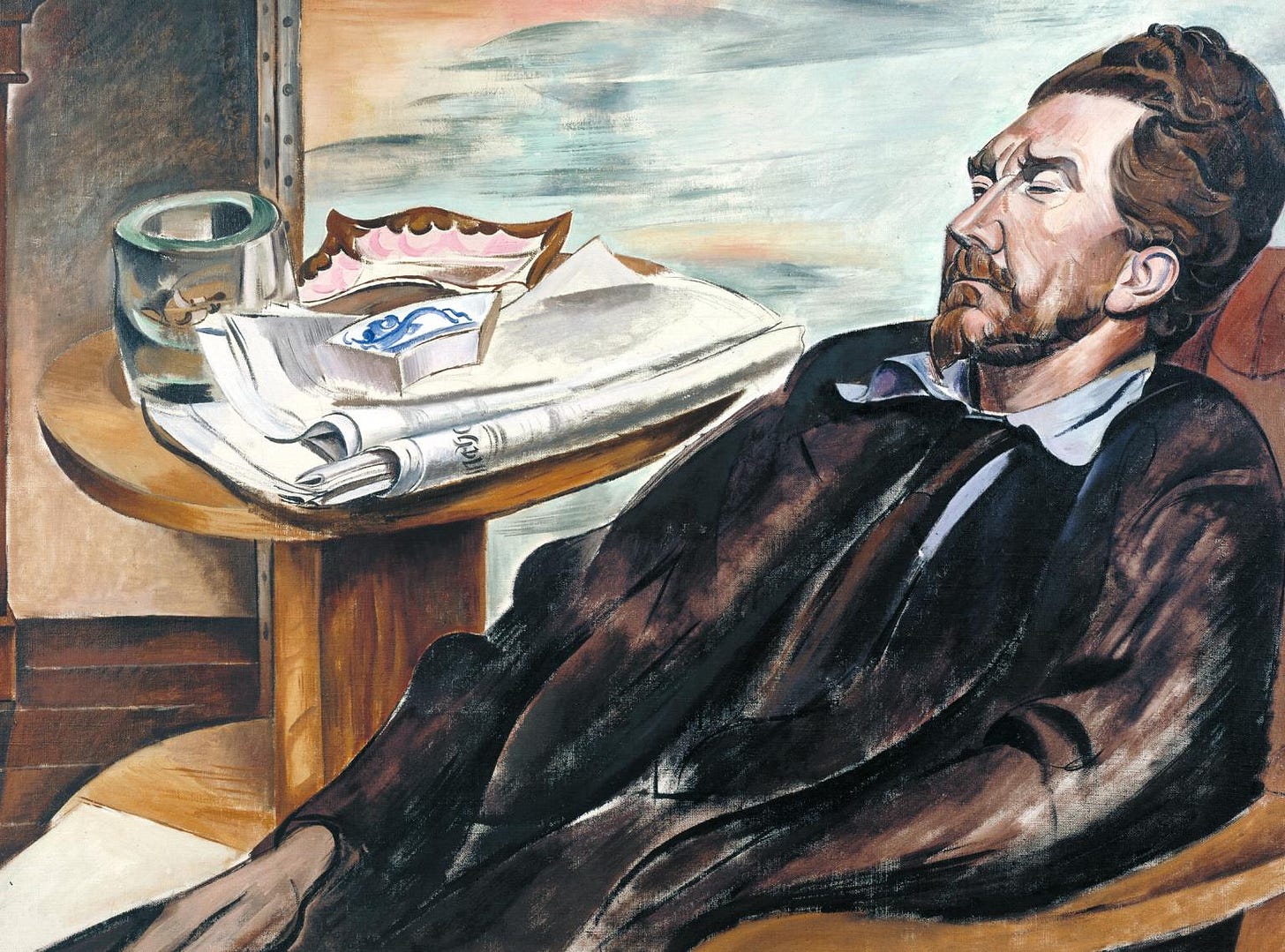Gleams from Ezra Pound
When friends ask me what holy books I believe in, I say that holy books are a sad crutch for a sad group of people who are no longer directly in contact with the Gods. Direct contact with the Gods is far more sublime than any stagnant set of words claiming to be from the mouth of “God.” If they persist in asking for my favored holy book, I respond: “NATURE! The Gods are in the maple leaves!” If the dunces claim that nature is not a book, I will point them towards Ovid, Heraclitus, and the writings of D. H. Lawrence, particularly his “Last Poems.” “But,” they respond, “you have still avoided the question. What is your holy book?” Okay, dear readers, I will let the cat out of the bag, my holy book is The Cantos of Ezra Pound. Any belief is probably better than no belief, but the Christian religion only has meaning and truth insofar as it keeps the flame of paganism alive. Medieval Catholicism, with its rituals and focus on the Gospels was a decent religion, but the Old Testament should never have been joined to the words of Jesus. Current Christianity has witnessed the loss of ritual, loss of Latin, and an increasing focus on the vile legalism and tribalism of the OT. If the Xtians want to make something of their religion once again, they should cut out the rotten flesh of the OT and join the Gospels to the Confucian Four Books and Ovid. Or just leave Xtianity in the past and join me in believing in a religion a sane man can believe in, namely that espoused by the great man Ezra Pound, in his great book The Cantos. Below, you will find some gleams from the lesser-known, later works of Pound, which prove he was an anti-Machine prophet, and of the party of the Gods.
Blasted friends
left a goddam radio here yester.
Gift.
God damn destructive and dispersive
devil of an invention…
Anybody who can survive may strengthen
inner life,
but mass of apes and worms
will be still further rejuiced to passivity…
A double sense of the blessedness
of silence
when the damn thing is turned off…
Personae now poked into every bleedin’ ‘ome
and smearing the mind of the peapull.
If anyone is a purrfekk HERRRRkules,
he may clarify his style in resistance
to the devil box.
I mean if he ain’t druv to melancholia crepitans
before he recovers.1
The old countryside is so spoiled
by all of the roads…
where land is exchanged for asphalt.2
All inside of earth being put
outside. Oil and metal in which
nothing grows. Tar where grass
should be. The inside of earth put
outside. Macadam, the infertile
roads encroaching on fields.
hydrogen
oxygen
nitrogen
carbon
the war is from carbon
attacking first hydrogen
then oxygen
their mouths are stopped with
dust.
The war is from carbon.3
I believe that [mechanization] is all temporary.
I think there is something “seminal” in humanity
that can outlive mechanization.
In short, I believe
something of man’s consciousness will remain,
despite everything,
and that it will be able to fight
against the forces of mindlessness.4
I try to break out of the cosmos.
There must be a light… somewhere…
The light in the rose-garden,
It’s a strange thing…
…The power of Evil!5
In accordance as man is intelligent,
he seeks after gods.6
Bibliography
Anderson, David. “Breaking the Silence: The Interview of Vanni Ronsisvalle and Pier Paolo Pasolini with Ezra Pound in 1968.” Paideuma 10 (1981): 331–45.
Livi, Grazia, and Natalie Harris. “The Poet Speaks.” Paideuma 8 (1979): 243–47.
Lock, Charles. “Ezra Pound in Athens: Words Spoken to Zissimos Lorenzatos.” Journal of Modern Literature 39 (2015): 72–86.
Pound, Ezra. Machine Art & Other Writings. Edited by Maria Luisa Ardizzone. Durham: Duke University Press, 1996.
———. Selected Letters 1907-1941. Edited by D. D. Paige. New York: New Directions, 1971.
Sieburth, Richard. “Sero Te Amavi: On the Late Olga Rudge/Ezra Pound Venice Notebooks.” Make It New 2 (2015): 29–34.
Ezra Pound, Selected Letters 1907-1941, ed. D. D. Paige (New York: New Directions, 1971), 342–43.
David Anderson, “Breaking the Silence: The Interview of Vanni Ronsisvalle and Pier Paolo Pasolini with Ezra Pound in 1968,” Paideuma 10 (1981): 340.
Richard Sieburth, “Sero Te Amavi: On the Late Olga Rudge/Ezra Pound Venice Notebooks,” Make It New 2 (2015): 34.
Grazia Livi and Natalie Harris, “The Poet Speaks,” Paideuma 8 (1979): 245.
Charles Lock, “Ezra Pound in Athens: Words Spoken to Zissimos Lorenzatos,” Journal of Modern Literature 39 (2015): 79–80.
Ezra Pound, Machine Art & Other Writings, ed. Maria Luisa Ardizzone (Durham: Duke University Press, 1996), 140.




Lively!